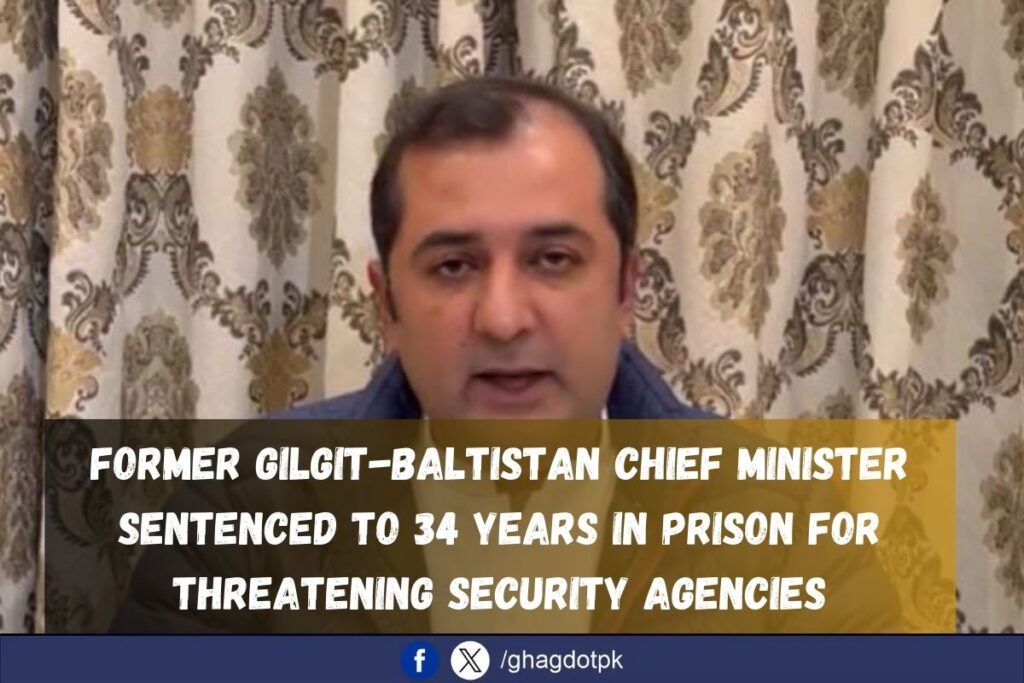Gilgit (Ghag Report):
Former Chief Minister of Gilgit-Baltistan, Khalid Khurshid Khan, has been sentenced to 34 years in prison by an Anti-Terrorism Court in Pakistan-administered Gilgit-Baltistan. The court found him guilty of threatening security agencies and government officials, a verdict that marks a significant development in the region’s political landscape.
The charges against Khalid Khurshid stemmed from a protest held in July 2024, during which he was accused of inciting violence and terrorism through inflammatory remarks. The prosecution claimed that he had openly threatened the Chief Secretary of Gilgit-Baltistan, police personnel, and intelligence agencies, warning that if he were to return to power, he would take action against them.
This conviction comes after Khalid Khurshid had already faced legal challenges. In December 2023, the Chief Court of Gilgit-Baltistan disqualified him from holding public office for five years in connection with a fake degree case, leading to the collapse of his government. Having served as the Chief Minister during the tenure of Pakistan Tehreek-e-Insaf, his legal troubles have raised serious questions about political accountability in the region.
Following the July protest, a Joint Investigation Team was constituted to probe the allegations. The investigation concluded that Khalid Khurshid was indeed guilty of the charges brought against him. Despite repeated summons, he failed to appear before the court, prompting the authorities to appoint a state counsel for his defense.
The prosecution successfully established its case, leading to his conviction under multiple legal provisions. The court sentenced him to 34 years in prison along with financial penalties. It also ordered the police to arrest Khalid Khurshid and enforce the sentence, while directing the National Database and Registration Authority to block his national identity card.
At present, Khalid Khurshid remains at large. Meanwhile, the Pakistan Tehreek-e-Insaf’s Gilgit-Baltistan chapter has rejected the court’s decision, labeling it as unjust and vowing to continue their struggle against what they described as political oppression.






